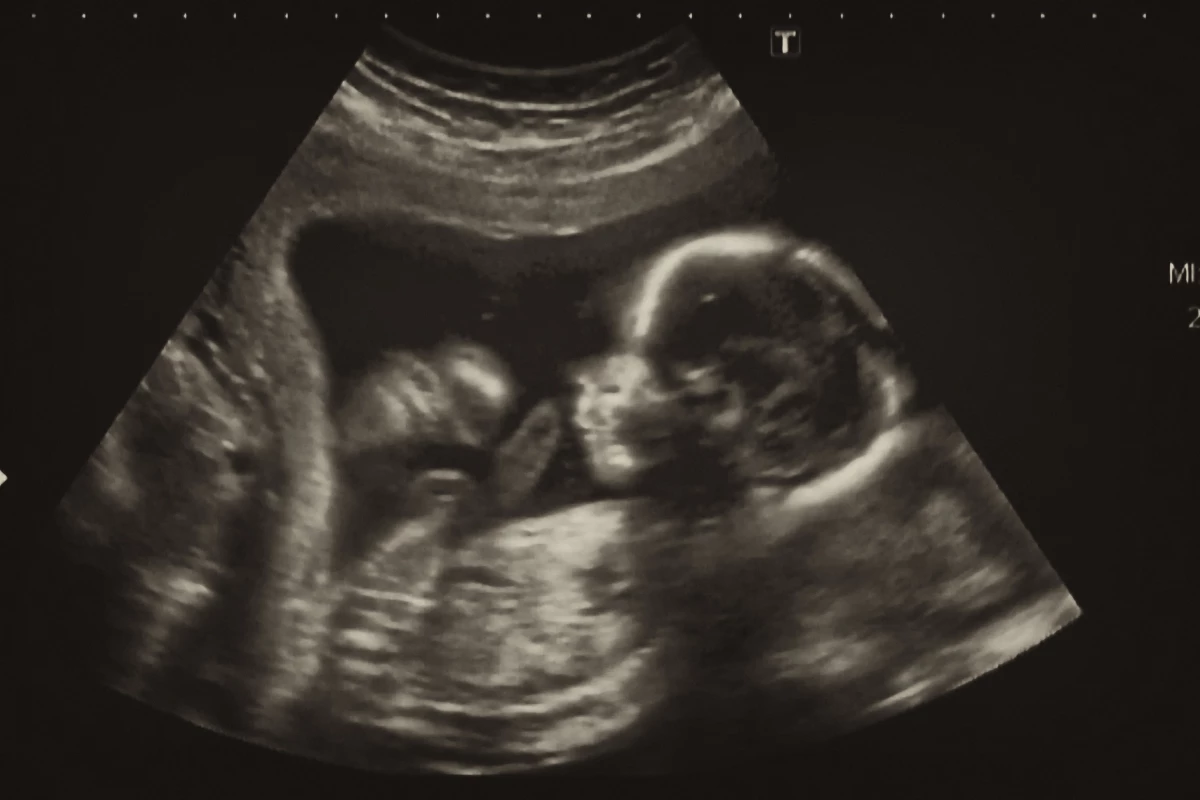Surgeons have successfully performed a first-of-its-kind procedure in utero to treat a potentially fatal genetic defect in the brain. Usually treated after birth, the new procedure could give newborns a better chance of a normal life.
Vein of Galen malformation (VOGM) is a rare abnormality that can occur in blood vessels in the brain during development. Arteries become misshapen and connect to veins instead of capillaries, which affects the rate of blood flow through the brain. This creates extra pressure in the brain, potentially causing types of brain damage or even heart failure, since the heart has to work harder to compensate. If left untreated, it can leave an infant with lifelong brain damage, affecting their development, while in some cases it’s fatal within a few days of birth.
The most common treatment for VOGM is a procedure called embolization. Performed after birth, a catheter is inserted through the blood vessels to the site of the malformation, where a substance is injected to block off the unwanted vein connection and restore normal blood flow. Unfortunately, by the time this is performed, the damage is already done.
So for the first time, surgeons at Brigham and Women’s Hospital and Boston Children’s Hospital have now performed a VOGM embolization in utero, guided by ultrasound. While in the womb, placental circulation takes the stress off the fetus’ heart and brain, protecting them from damage. The hypothesis was that performing the procedure before birth could improve outcomes.
The team performed the procedure on a fetus at 34 weeks and two days gestation, and appears to have been successful. The baby was born in mid-March and MRI scans showed no signs of stroke, fluid buildup or hemorrhage, which are common symptoms of VOGM.
“In our first treated case, we were thrilled to see that the aggressive decline usually seen after birth simply did not appear,” said Darren Orbach, lead author of the study. “We are pleased to report that at six weeks, the infant is progressing remarkably well, on no medication, eating normally, gaining weight, and is back home. There are no signs of any negative effects on the brain.”
As impressive as the results are so far, the team notes that this is just one case, and future work will need to be done to check the safety and efficacy in other patients.
“This approach has the potential to mark a paradigm shift in managing vein of Galen malformation, where we repair the malformation prior to birth and head off the heart failure before it occurs rather than trying to reverse it after birth,” said Orbach. “This may markedly reduce the risk of long-term brain damage, disability, or death among these infants.”
The research was published in the journal Stroke.
Source: Brigham and Women’s Hospital




